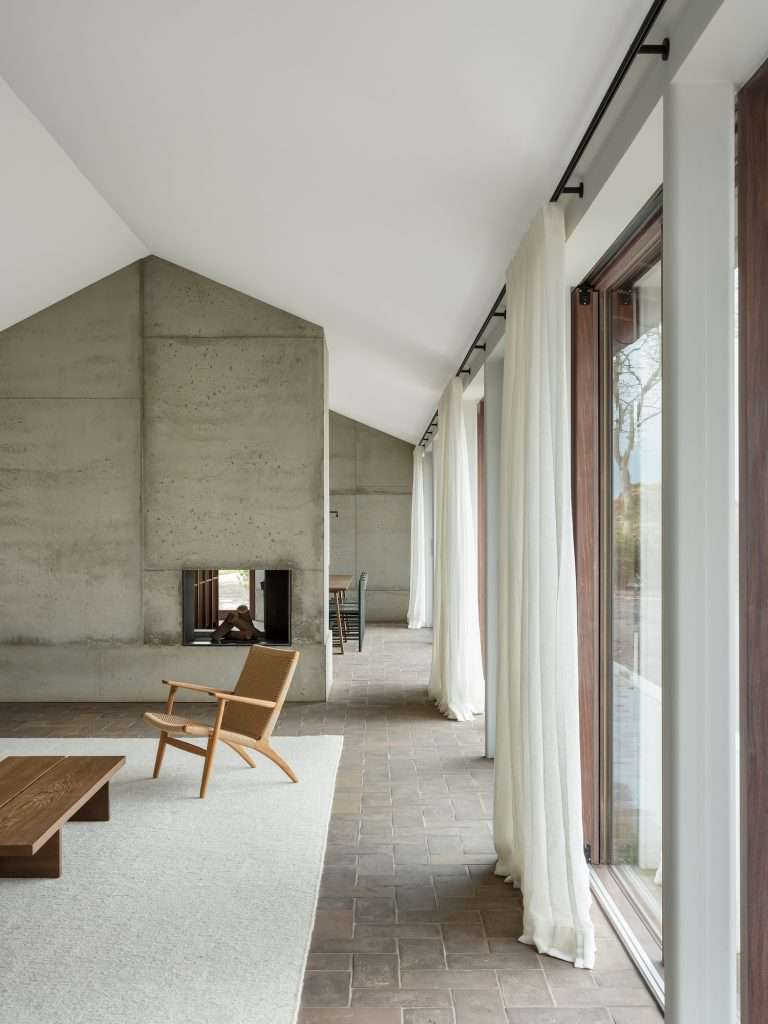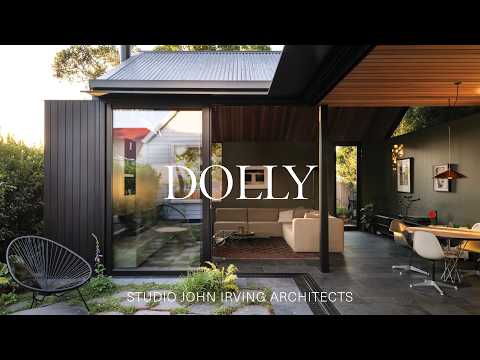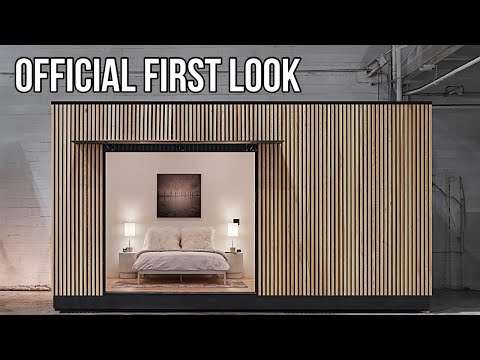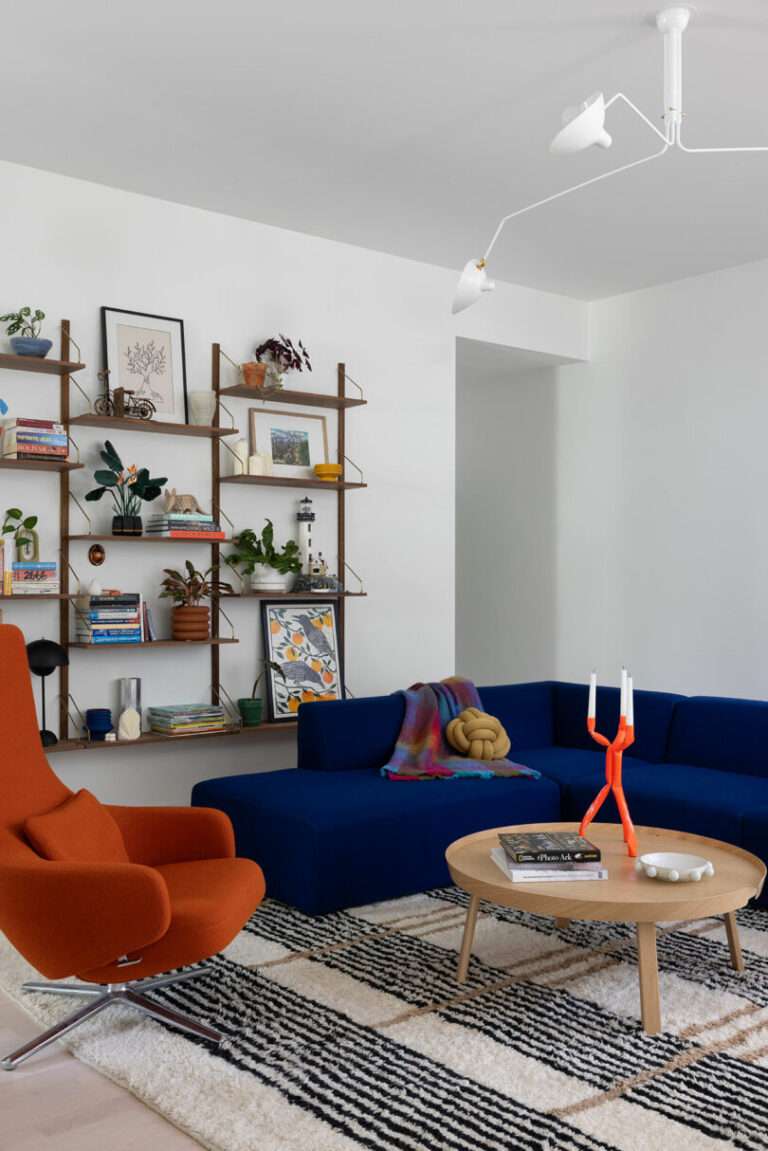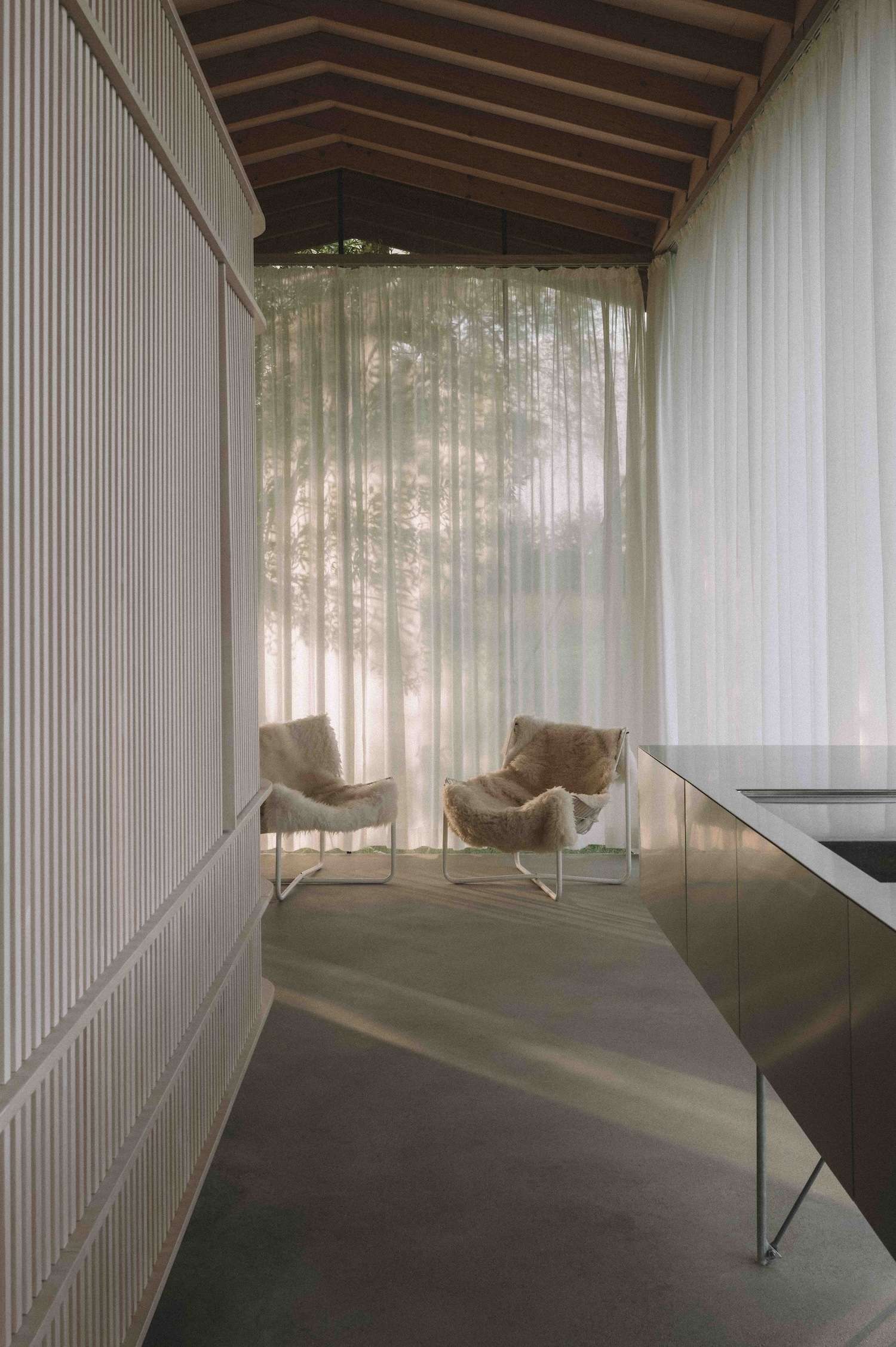
Holiday House Hof Ahmen is a minimal home located in Kopperby, Germany, designed by Atelier Sunder-Plassmann. The original farmstead is organized around a rectangular courtyard bordered by permanent grassland and rows of trees typical to the region. At the heart of this space is a listed thatched-roof main house, surrounded by mature trees. To the east, there are detached roofs of a sheep barn, built in 1990 in an open wooden structure, reflecting the proportions and roof shapes of local “Drempel barns.” The new holiday house builds on this arrangement, adding a fifth floating roof that extends the roof structures already present. Beneath this roof sits a floating platform, which houses the main living space.
Fully glazed, the platform blurs the line between interior and exterior, creating a seamless connection between the two environments. The design draws clear inspiration from modernist architecture, recalling icons such as Philip Johnson’s Glass House and Mies van der Rohe’s Farnsworth House. Elevated slightly above the landscape, the house provides its residents with an uninterrupted view of the surrounding nature. The play of light, shifting cloud formations, changing seasons, and the presence of grazing sheep all become integral elements of the home’s atmosphere. Nature takes center stage, transforming the surrounding environment into a dynamic and ever-changing backdrop. Entry is through an east-facing terrace, which functions as an outdoor living space in summer.
A large sliding door leads to the main room, which echoes the proportions of classic longhouses, measuring 4 meters by 10 meters with a ceiling height of 4.1 meters. The space harmonizes traditional rural forms with the clean lines of modernism. The interior is subtly divided into three zones by a volume of wooden slats, which delineates without fully enclosing the space. The southern part, bathed in sunlight throughout the day, serves as a dining area with a large, freestanding table. To the north, the living area catches the evening sun. Centrally, the kitchen and wet areas are integrated into the wooden structure, which helps visually separate these functions from the rest of the room. Two wooden cubes, housing sleeping areas, are embedded within the glazed platform, providing a sense of privacy in contrast to the open plan.
